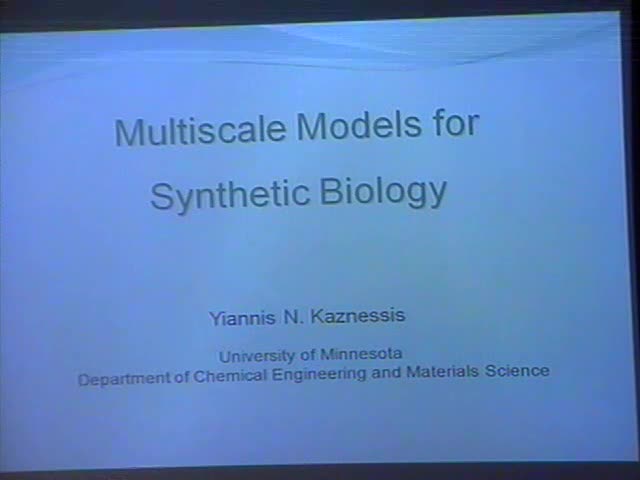Multiscale models for synthetic biology
Presenter
May 13, 2008
Keywords:
- Model, biology
MSC:
- 62P10
Abstract
The nascent field of synthetic biology offers the promise of engineered gene
networks with novel biological phenotypes. Numerous synthetic gene circuits
have been created in the past decade, including bistable switches,
oscillators, and logic gates. Despite a booming field and although recently
developed designs of regulatable gene networks are ingenious, there are
limitations in routinely engineering synthetic biological systems. Indeed,
there is a need for rationalizing the design of novel regulatable gene
networks that can be used in useful applications.
We are developing multiscale mathematical tools to assist synthetic biology
efforts. Why are multiscale models necessary to assist synthetic biology,
and not simply apply the mathematics developed to model kinetic and
thermodynamic processes in living organisms? Because, although the
principles of thermodynamics, kinetics and transport phenomena apply to
biological systems, these systems differ from industrial-scale chemical
systems in an important, fundamental way: they are occasionally far from the
thermodynamic limit. Indeed, using ordinary differential equations for
simulating the reaction kinetics of these systems can be distinctly false.
The need arises then for stochastic models that account for inherent,
thermal noise, which is manifest as phenotypic distributions at the
population growth/interaction levels.
In the presentation, we will discuss synthetic biological systems, the
development of multiscale models to capture the phenotypic behavior of these
systems and we will present examples of model-driven synthetic
bioengineering.
